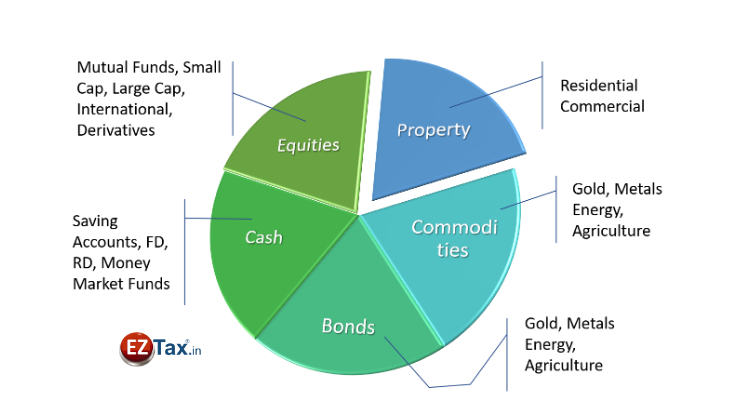 4.8 ★★★★★ Excellence since 2016
4.8 ★★★★★ Excellence since 2016 Home > EZTax.in Money > Investments
Demat, or dematerialised account, is a an account to hold your shares in an electronic form. You need a Demat Account to buy, hold and sell shares in the stock markets in India. Know what is Demat Account, Steps & Tips in starting a Demat Account in India.

A demat account, which is the short form of dematerialised account, is an account whose purpose is to hold shares and securities in an electronic format. Demat accounts in India are maintained by National Securities Depository Limited (NSDL) and Central Depository Services Limited (CDSL).
In the past, shares were held in the form of physical certificates. However, this made the process of trading in shares a slow and difficult. Physical shares, like any other document could also get lost, damaged or even be forged. To do away with all these problems and facilitate share trading, demat shares were introduced in India in 1996. Over time, all physical shares needed to be converted into dematerialised form.
To start investing in shares you need a demat account. To open a demat account you need to go through an intermediary, also known as the depository participant (DP). However, to trade in shares, you also need to have a trading account with a broker and link it to your demat account. Your stockbroker can also be a DP.
When you want to buy shares, you place a buy order. Your DP forwards this request to the stock exchange. The stock exchange would then match your buy order with a sell order and send details to the clearing house. The clearance house will debit the required shares from the seller’s account and credit it to your account.
Opening a demat account is a simple process, especially because the entire process happens online and requires very little time. Here are the steps to open a demat account.
Select a DP. Most brokerages, banks and other investment platforms provide this service. Most DPs will let you open both a demat and a trading account.
There are some charges associated with a demat account which you need to be aware of. While account opening is free, there is an annual maintenance charge which goes up with the volume of transactions. DPs will also charge you based on the number of transactions made or a flat fee for the entire month. You should choose a plan based on your requirement. It is important to know these charges because they can vary widely. DPs will also charge you to dematerialize or rematerialize your shares.

You would then need to visit the website of the DP and fill up an account opening form submit the required KYC documents and a photograph. These would include your income proof or income tax return (if not filed, get it through Expert assisted Income Tax filing from eztax.in), address proof, bank account statement. Keeping all these documents ready, makes the process easier. Your Aadhaar and PAN card are required. Now, the entire KYC verification process happens online in a matter of few minutes.
In the next step you will be required to go through in person verification process. This is a mandatory step. A staff member of the DP will get in touch with you and check whether the documents you provided are authentic. For this you may be required to be present at the DP's office. However, nowadays, in most cases this process happens online either through a webcam on your laptop or through your smartphone. Then you have to sign an agreement copy which lists down all the rights and duties of both the DP and the investor.
Next, the DP will process your application. Then you will be provided with a Demat Account number and also a Client ID. Using these details, you can access your demat account online.
As we have seen, opening a demat account is the first step if you want to invest in shares and reap the benefits of the stock markets, Happy investing!
Disclaimer: This article provides an overview and general guidance, not exhaustive for brevity. Please refer Income Tax Act, GST Act, Companies Act and other tax compliance acts, Rules, and Notifications for details.